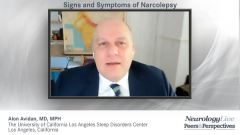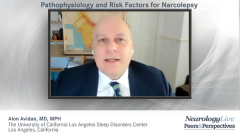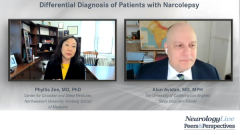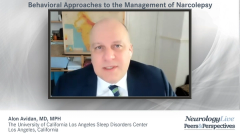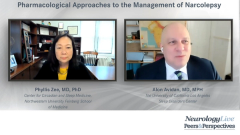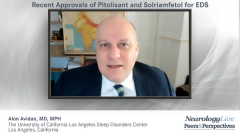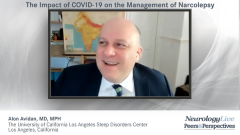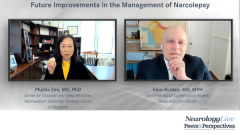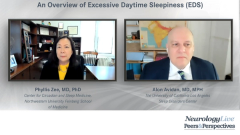
An Overview of Excessive Daytime Sleepiness (EDS)
Experts in the management of sleep disorders provide an overview of excessive daytime sleepiness (EDS) including potential causes and consequences.
Episodes in this series

Phyllis Zee, MD, PhD: Hello, and thank you for joining this NeurologyLive® Peers & Perspectives® presentation titled “Treating Narcolepsy and Excessive Daytime Sleepiness.” I am Dr Phyllis Zee. I am a professor of neurology and the director of the Center for Circadian and Sleep Medicine at Northwestern University Feinberg School of Medicine in Chicago, Illinois. I am joined by Dr Alon Avidan, who is a professor of neurology and the director of the Sleep Disorders Center at UCLA [University of California, Los Angeles] in Los Angeles, California. Let’s begin.
One of the questions we often get asked is, “What is excessive daytime sleepiness?” We all experience daytime sleepiness sometimes, especially when we are sleep deprived. That is a normal biological reaction to sleep deprivation. For excessive daytime sleepiness, however, patients are falling asleep or are unable to stay awake, even in inappropriate situations. It is affecting their daytime functions and of course their safety. Dr Avidan, what are your thoughts?
Alon Avidan, MD, MPH: It is a pleasure to be on board with you on this webinar, Dr Zee. This is an excellent question to start our discussion. When we are seeing patients who are describing to us what they experience as daytime sleepiness, you are absolutely right. They use words like tiredness, fatigue, and brain fog. They may also have an experience similar to some specific information they may have read about, like hypersomnia. I have had a patient say, “Doctor, I think I have hypersomnia.” I was perplexed, and I realized that the patient must have done some reading. We must be mindful of what is being interpreted when patients are mentioning the words hypersomnia or sleepiness to us. We want to get a sense of whether it is something that is happening from the moment they wake up until they go to sleep. Does it have any variation throughout the day?
Dr Zee, you are a circadian physician, and you have done all the research that we are all talking about when we talk about circadian disorders. We realized that, during the waking period, people have a dip in alertness. Every 1 of us will feel a bit groggy or sleepy after noontime when we take our lunch. That is expected, and in some countries, people will take a siesta, a short break and nap in the afternoon. That dip in alertness is certainly something that is universal and expected. If a patient tells me, “I am seriously concerned about why I feel so tired between 12 and 2 or 3 PM.” I will tell them that, as long as they are OK and they are feeling alert the rest of the day, that is fine.
When we are talking about excessive sleepiness in narcolepsy, we are talking about sleepiness that is pervasive. It does not go away, and it is present from the moment the patient wakes up until they go to sleep. The sleepiness is there irrespective of the sleep duration that the patient has gotten. For example, the No. 1 reason people experience daytime sleepiness in the United States is probably sleep deprivation. One has to be mindful that, as we are asking questions about daytime sleepiness, we are looking at the opportunity for sleep that the patient is giving themselves. This is daytime sleepiness despite a good opportunity for the patients to be able to have enough sleep duration. What is interesting in narcolepsy is that, regardless of the fact that they are sleepy and tired, their sleep during the night is also fragmented. That is the paradox of this condition.
Phyllis Zee, MD, PhD: In neurology, since we are both neurologists, we see a lot of patients with excessive daytime sleepiness. It is oftentimes related to their neurological disorder. A lot of our patients with neurodegenerative disorders have that. But as you said earlier, narcolepsy is often overlooked as a cause of excessive daytime sleepiness. When we talk about sleep disorders, something like obstructive sleep apnea is perhaps more common than narcolepsy, but the consequences of excessive daytime sleepiness are definitely broad and huge from personal, social, and professional aspects. Because of car accidents and job accidents, what is concerning for many of our patients is safety.
Thank you for watching this NeurologyLive® Peers & Perspectives® program. Please subscribe to the e-newsletter to receive upcoming Peer Exchanges® and other great content in your in-box.
Transcript Edited for Clarity
Newsletter
Keep your finger on the pulse of neurology—subscribe to NeurologyLive for expert interviews, new data, and breakthrough treatment updates.

